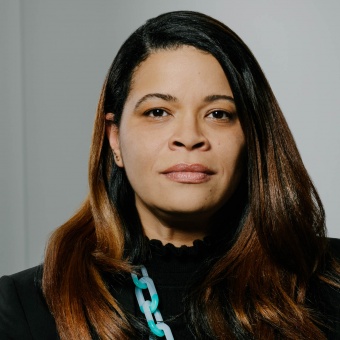
Founded in 2016 by the Open Society Foundations, the Leadership in Government (LIG) Fellowship is a 12-to-18 month fellowship designed to help former senior-level government staff in the United States and its territories to develop ideas and strategies to further the values of an open society. During the application process, fellows propose a project to take place anywhere in the United States that relates to one of four goals: justice system reform, strengthening democratic practice, equality for racial minorities and immigrants, and economic advancement. Fellows receive a generous stipend and networking opportunities.
We talked to Roxanne Franklin Lorio, a 2018 Leadership in Government Fellow, to learn more about the fellowship and get some tips for preparing an application.
1. What inspired you to apply for the Leadership in Government Fellowship?
I was inspired to apply for the LIG Fellowship because as an administrator leaving government service, I felt that there was a lot to more learn and share about equitable engagement between government and community. One of the most critical things I came to understand while in government was that the people you serve must be included in the development and design of initiatives for their community. Partnership is necessary to achieve the positive community-level outcomes we seek and government tends to engage poorly or too far along in the process with community.
I worked in the non-profit community before I served in government at both the state and local level, so I understand how these sectors operate and these experiences have allowed me to more deeply understand the inequities that permeate decision-making. In the last few years, a number of leaders have decided to address these inequities head-on, recognizing that providing inclusive opportunities for engagement, participation, and partnership is critical to maximize desired impacts in the community.
The LIG Fellowship allows individuals coming out of government to examine and challenge important issues that need to be addressed from the outside, while leveraging and expanding their expertise to find solutions.
2. What have been some of the most eye-opening moments during your fellowship?
My fellowship project is focused on promoting greater collaboration between municipal government and communities through increased civic engagement, participation, and resident leadership development. I spend quite a bit of my time researching transformative models of civic engagement in communities all over the country and engaging with organizations and individuals who advance the values of equity and inclusion in their work.
The most eye-opening element of the fellowship is that it allows you the space to think differently and challenge the status quo from the outside. Usually, those pushing for changes in government have not served in that system, so those that have worked inside carry with them a unique understanding. In appointed government service, you operate under policies and procedures for the public good, at times amending or putting forth new policy, but are usually limited to the agenda of the administration you work for. Transitioning from that role can be quite challenging, as you now have the freedom to present your own agenda to address areas of social injustice.
In addition, the fellowship provides access to a cohort of really bright, committed people to engage with and learn from in this process, which is critical as you work to address societal needs. I know that if I have a question about something, I can reach out to members of my cohort or the foundation for support, which is both productive and empowering.
3. What tips would you give others applying to the Leadership in Government Fellowship?
I would encourage those that want to apply for the fellowship to think about the relevance of key issues you want to address and how your proposed idea compliments the program areas of the Open Society Foundations. If you are thinking of leaving government, you might have many ideas for things you want to work on, which can make it difficult to narrow the scope while also trying to achieve maximum impact. The application is straightforward and requires a certain amount of specificity so make sure you have thought about not only the “what” but also the “why”.
The interview process is challenging and exciting at the same time! Know that if you have been selected for an interview, you have presented a competitive application. You should be proud of it and excited to talk in-depth about it with the panel.
It is my opinion that the selection committee is looking for candidates that are truly committed to advancing economic and social justice and who are open to continued learning throughout their fellowship experience. Being able to communicate a great idea is important, but the willingness to challenge yourself as a leader is truly transformative.
Dr. Roxanne Franklin Lorio serves as a Leadership in Government Fellow at the Open Society Foundations where she works to promote greater collaboration between municipal government and communities through increased civic engagement, participation, and resident leadership development. In addition, Roxanne is a strategic equity & research consultant both in the US and the United Kingdom. Roxanne holds a BA in World Arts and Cultures from the University of California, Los Angeles; a JD from Western New England University; and both an MSW and DSW from Tulane University, School of Social Work.
Interested in applying? Bookmark the Leadership in Government Fellowship your ProFellow account.
© Victoria Johnson 2018, all rights reserved